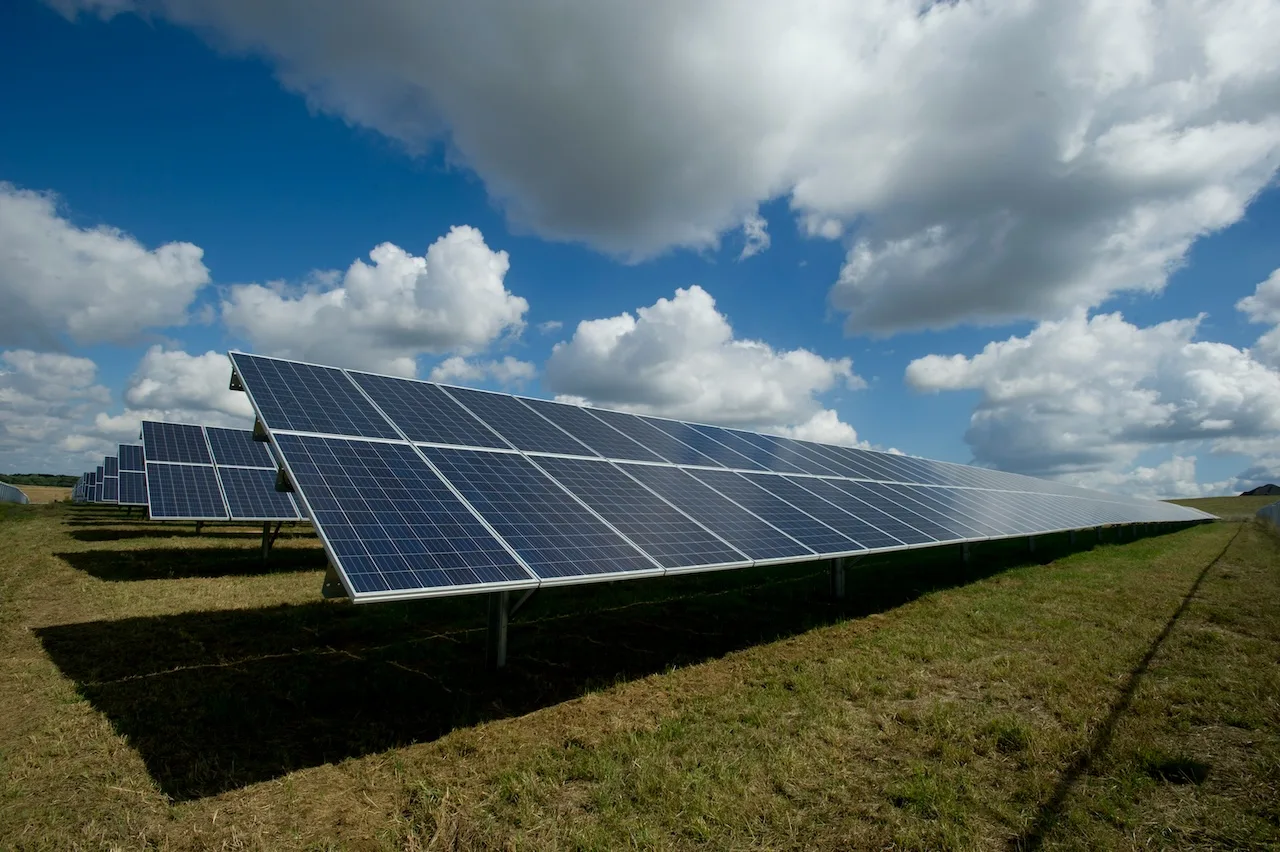
In this op-ed, Michigan resident Joe Gutowski shares his script for supporting renewable energy used for public comments at township and county board meetings
Michigan utilities currently import 100% of the coal, 92% of the natural gas, and 97% of the oil and petroleum products used to generate energy, which drains over $18 billion a year from the state economy.
By increasing energy efficiency and by increasing and using Michigan-based renewable energy, the changes mandated by this legislation will reduce that financial drain and help keep those dollars here in Michigan thereby reducing overall energy costs.
Energy in Michigan is generated using Natural Gas (34.4%), Coal (29.4%), Nuclear (22.4%), Wind (7.8%), Biomass (2.0%), Petroleum (1.3%), Solar (0.8%) and Hydroelectric (0.5%).
Currently Michigan utilities are required to generate power using at least 15% renewable energy. Recently passed legislation will increase that requirement to 50% by 2030, 60% by 2035 and 100% by 2040.
By constructing and using more renewable energy sources, Michigan utilities become less dependent on coal, which in addition to being dirty, is also increasing in cost.
In addition, by using more renewable energy, Michigan utilities will use less natural gas, which while cleaner, and less costly than coal, also faces seasonal demand related availability issues, which can negatively impact a utilities’ ability to generate power. During the summer utilities use more natural gas to generate power to meet summer cooling demand and during the winter Michigan consumers use natural gas to heat their homes, which reduces the amount of natural gas available to utilities to generate power.
MISO, the Midcontinent Independent System Operator, which operates the electric transmission system (grid) in portions of 15 states in the Midwest and South, has voiced a concern regarding the availability of natural gas to generate power during very warm summer and very cold winter months.
And according to EIA – U.S. Energy Information Administration, over 30% of the energy used in Michigan is purchased rather than generated.
Michigan utilities have voiced a concern that continued reliance on purchasing power from the grid to supplement Michigan’s inability to generate enough power to match consumption could result in unplanned power interruptions.
Michigan now ranks among the top five states with the most power outages. In addition, on average, purchased power is much more expensive than power generated by Michigan utilities.
This information shows how by building utility scale solar and wind facilities throughout the state, Michigan residents will realize energy savings and increased reliability.
Regarding claims this legislation will abandon proven fuels for new, unreliable energy sources, one only needs to look at four states which are leading the way with clean renewable energy nationwide.
Texas has 4 of the 12 largest industrial wind farms in the nation.
Texas generates over 92 Terawatt-hours of electricity per year from wind, more than the next three top states, Iowa, Oklahoma, and Kansas, combined.
Iowa generates 61% of its electric power from wind.
Texas’ wind generating capacity is 37,442 megawatts compared to Michigan’s 3,102 megawatts.
Texas has 16,173 megawatts of solar installed compared to Michigan’s 947 megawatts. Texas has 18,552 wind turbines compared to Michigan’s 1,658 wind turbines. Renewable energy is proven energy.
Transformative, ambitious, and controversial aptly describe Michigan’s new renewable, clean energy legislation enacted on November 28th, 2023. Imagine, by 2040, only 17 years away, Michigan’s utilities will generate 100% of electricity from clean energy, mostly solar, storage technologies, wind, water, and nuclear, up from 12% now. Therefore, this new legislation is a big deal, a very big deal. Sure, there will be certain transition costs, but these will be offset by increased energy security. New, affordable, reliable, and healthier energy and storage technologies will reduce the risks of rising and volatile fossil fuel costs.
It’s all worth it, if we truly want to increase public health and prosperity while protecting our Great Lakes for future generations.
The new 100% clean energy mandate positions Michigan as a national energy leader. The new legislation balances local and state siting, preserving a great deal of local control. The Michigan Public Service Commission must find sound, legitimate public interest reasons before approving solar projects over 50 Megawatts and wind projects over 100 Megawatts.
For everyone, the cost of energy is a major concern. The Michigan League of Conservation Voter’s recent presentation at Northern Michigan University demonstrates that non-renewable coal and natural gas are now more expensive to produce than solar and wind. Because Michigan produces almost zero natural gas, oil, and coal, we pay billions to import non-renewable fossil fuels produced with outstate labor at higher fluctuating and unpredictable costs.
By contrast, locally produced and renewable solar and wind energy coupled with storage will produce lower and predictable electricity costs. Plus, 160,000 new solar and wind jobs in Michigan will be created according to the Michigan Energy Innovation Council.
By adding wind, solar and storage to the electrical grid, the grid’s overall reliability is enhanced. And local governments that sponsor solar and wind will realize significant revenue increases. This is because they can convert low-taxed land into more valuable energy producing land from which they can derive far more tax or other payments.
And Michigan farmers will have a better chance to economically survive and create a legacy for future generations by placing wind or solar on part of their land to help finance farming operations.
Senate Bill 277, one of nine renewable energy bills, was recently enacted as Act No. 230, Public Acts of 2023. This legislation amended Michigan’s Farmland Preservation Act, more commonly known as PA 116, which allows enrolled farmers to lease their farmland for the use of solar panels while remaining in the program.
While some have claimed that this legislation is completely antithetical to the intended purpose of PA 116, they do not tell you that for years farmers have been submitting the Farmland and Open Space Preservation Program Solar Panel Application to the State of Michigan to do on an individual basis exactly what Senate Bill 277 stipulates. All the enacted legislation did was to streamline the process by allowing approval of all requests versus the previous individual application approval process, which approved each application on an individual basis.
And this legislation in many cases will allow farmland to remain in a family when it otherwise would likely be lost through sale or foreclosure.
And finally, I believe it is the right of every landowner to do with his or her land as they choose.
This is not a partisan issue. Look beyond those who decry solar and wind as a political wedge to divide. Recent polling shows that 73% of Americans see climate change as a big deal. Our planet and our survival are more important than politics as usual.
Politics

Elissa Slotkin: Not even birth control access will be safe if Trump wins in 2024
Michiganders may think their reproductive rights are safe, but Trump and Republicans are already plotting their next steps to take away access in...

Why you should care about this year’s Michigan Supreme Court election
Michiganders will soon decide who serves on the highest court in the state—and those two justices will have a hand in making some important...

Dozens march to Flint city hall as the water crisis turns 10 years old
BY KEN COLEMAN, MICHIGAN ADVANCE MICHIGAN—Chanting “Clean water is what we demand,” “Water is a right” and “No justice, no peace,” dozens of people...
Local News

Who makes the best cannabis concentrates in Michigan?
Over the last year, we've asked for reader recommendations for the best dispensaries in Michigan and the best weed, best edibles and best vapes you...

7 quick hits of cannabis news from across Michigan
MICHIGAN—Cannabis is a big deal in Michigan—and there’s never a shortage of newsworthy headlines from the industry as the state inches closer to...






